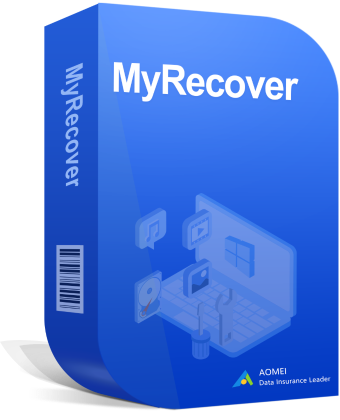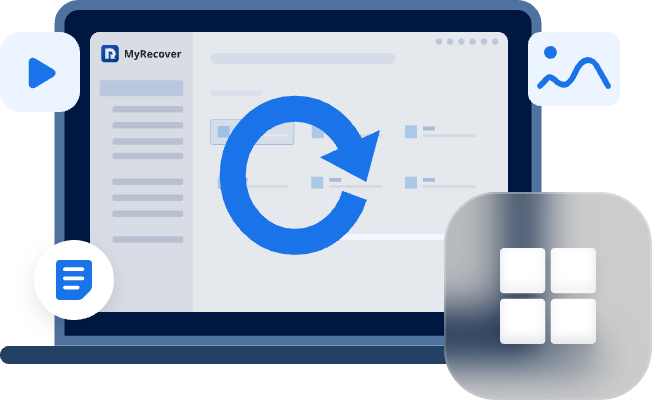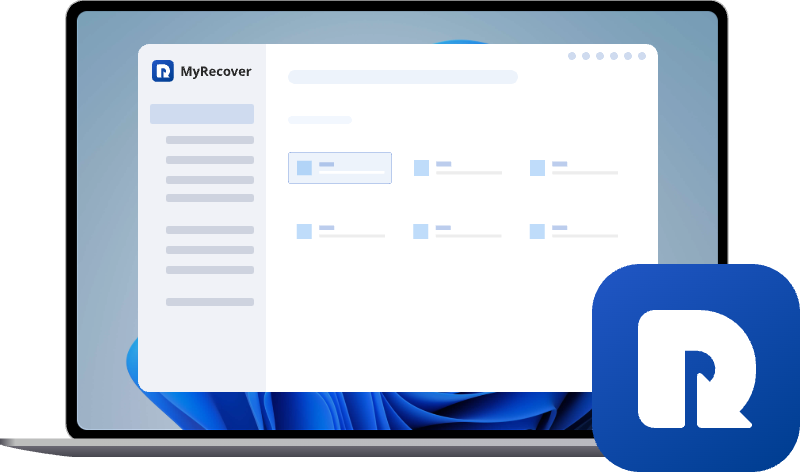Fix 'File or Directory Is Corrupted and Unreadable' Error Fast -7 Ways
Struggling with "file or directory is corrupted and unreadable" or "D is not accessible the file is corrupted and unreadable" in Windows 11, or 10? Discover expert methods to repair corrupted drives, recover lost files, and prevent future errors with actionable tips.
The File or Directory is Corrupted and Unreadable. Please Help!
Urgent Issue. My USB file got corrupted. It says the file or directory is corrupted and unreadable.
Urgent Issue. My USB file got corrupted. It says the file or directory is corrupted and unreadable. I have tried running the command prompt and checking the disk. However, it says that the type of file system used is FAT32. Volume serial number is 02A5-768A. The \entry contains a nonvalid link. \RZCFYAr0.d Invalid Time Stamp.. \tmkso Folder has non-zero file size. Unrecoverable error in folder \tmkso. How do I recover my data? the USB contains very important files and folders.
- Question from answers.microsoft.com
If you are suffering from the error "The file or Directory is corrupted and unreadable", how to fix the error and access these files? Don’t panic, you will find the reasons and solutions to fix it quickly.
Why File Directory Corrupted or Unreadable?
When a "file or directory is corrupted and unreadable" issue occurs, it indicates that the system is unable to access or comprehend the data contained in the file or directory because of corruption or damage.
Besides, you might encounter other similar errors, like "Error 0x80070570: The file or directory is corrupted and unreadable", "D:\ is not accessible. The file is corrupted and unreadable", etc. No matter what error messages, some factors might cause these errors:
⭕ Malware or Virus Infections
⭕ Bad Sectors on the Hard Drive
⭕ Logical Damage (like file system errors, etc).
⭕ Incorrect Device Ejection
Whatever the reason, finding effective solutions is quite important. The following part will show you the solutions. Let’s find out more.
How to Fix "File or Directory is Corrupted and Unreadable"?
How can I fix the file or directory is corrupted and unreadable? Here are the quick solutions.
Way 1. Reboot Computer
Rebooting the computer usually fixes most errors, so try to reboot your computer and reconnect your external hard drive (if required) to check if the error is solved or not. Or you have to try other solutions below.
Way 2. Checking USB or External Drive Connections
External drives often throw this error due to loose connections or file system issues. Ensure the connection is tight and can be detected. Or try a different USB port or cable. Then try to access files normally.
Way 3. Use the Chkdsk Utility
The “The file or directory is corrupted and unreadable” error can occur on the local disk, external hard drive (USB flash drive, SD card, etc) if you encounter this error, use the chkdsk utility to fix the hard drive easily. Here are the steps to fix this error:
1. Input command prompt in the Windows search box, right-click it, and choose Run as administrator.
2. Type the command: chkdsk X: /f /r (Replace X with your drive letter of the drive that has the error)
- /f: fix errors found, as usually chkdsk will only report errors.
- /r: finds corrupt sectors and retrieves information that can be read. You need to lock the disk. In addition to the functionality of /f, /r also analyzes physical disk faults.
That command should fix any problems on the drive, but if a file or folder is corrupt, then that file or folder will be deleted if it is not recoverable, and resolve any other errors on that drive.
Way 4. Using Windows Built-in Repair Tools -SFC
The System File Checker (SFC) scans and restores corrupted Windows files. So you can use SFC to fix "file directory is corrupted or unreadable" if the error message is caused by file system errors. Here are simple steps to fix the error "0x80070570 the file or directory is corrupted and unreadable":
1. Input CMD in the Windows search box, and choose Run as administrator.
2. Type sfc /scannow and hit Enter.
Wait for the scan to complete.
If the hard drive has errors, it will show messages like "There is a system repair pending which requires reboot to complete. Restart Windows and run sfc again", etc. Follow the guide to repair Windows system files.
If it shows you like this: Windows resource protection did not find any integrity violations, etc. Which means there are no corrupted system files to fix.
Way 5. Restore from Backup
If you have created backups for these files and directories, you can restore data from these backups and move these files to another location for easy access. Now, manage your files easily.
Way 6. Try A Professional Data Recovery Software - MyRecover
In some cases, CHKDSK can fix logical file system errors. However, if your hard drive is dying, it will mess things up. CHKDSK can cause physical damage to the drive’s platters, sectors, or the read/write head, leading to permanent data loss. If you want to assess the health of the drive, consider using a specialized free data recovery tool like MyRecover.
- Precise recovery. It provides a precise data recovery solution, giving you a specific data recovery path to find data easily.
- Permanent deletion recovery. It recovers permanently deleted files easily, like data from emptied Recycle Bin, files deleted by shortcuts, etc.
- For All Data Loss secinaros. Recover files from a formatted partition or hard drive, system crash, or virus attack, etc.
- 1000+ file formats Recovery. You can restore any files, including Word, Excel, PPT, images, videos, archives, contacts, notes, app data, call history, emails, etc.
- Flexible devices supported. Restoring data from HDD, SSD, external hard drive, USB flash drive, SD card, etc.
- Different file systems are supported. MyRecover supports NTFS, FAT32, exFAT, and ReFS in Windows 11/10/8/7 & Windows Server.
- Preview files before recovery. It’s important to preview files before recovering, which is helpful to find the right file you need.
So, how to use MyRecover to restore files if you meet the "The file or directory is corrupted and unreadable" error in Windows 11, 10, check the following steps to recover data from an external hard drive for example:
1. Please download and install MyRecover on your computer. Connect your external hard drive to the computer and ensure it can be detected.
2. Click Disk Data Recovery on the left side, then choose Scan when hovering over the external hard drive.
3. It will start deep scanning to find the corrupted and missing files, wait for the process to complete, and hit OK when done.
4. Open the path on the external drive where the file is corrupted or missing from the results, find the file you need to recover, and hit Recover.
5. Choose another location and hit Select Folder to save these recovered files to keep them safe.
- Tips:✎...
- You can restore files up to 500MB for free. For more data recovery, please upgrade to enjoy.
- Besides, you can enjoy all other premium features after upgrading, like previewing files to quickly find the right files; recovering data from a crashed computer, etc.
Now, you can go to the destination to find the recovered files.

- Recover Deleted Files Easily with Simple Clicks
- 1000+ File Formats Supported
- Support HDD, SSD, External Hard Drive, USB Drive, SD Card, etc.
- Quickly Find Files Using File Types, Name, Size, etc.
Way 7. Reformat the Drive (Last Resort)
If files are not important, then use the diskpart command, clean the disk, and format it. Please back up important files before formatting if possible. Here is how to format the disk that says “The file or directory is corrupted and unreadable” error message:
1. Open Command Prompt as an administrator.
2. Type diskpart and hit Enter.
3. Type list disk and hit Enter.
4. Type select disk # (# is the disk number of the disk)
5. Input clean and hit Enter.
6. Type create partition primary and hit Enter.
7. Input the following command and followed by Enter: format fs=fat32 quick (or other formats, like NTFS, exFAT, etc, according to your situation)
8. Type assign letter=G and hit Enter.
Now, you can exit the Command Prompt and find that the drive has been formatted.
Preventing File and Directory Corruption in the Future
Regularly Updating and Scanning for Malware
Keep Windows and antivirus updated to block corruption-causing threats.
Safely Ejecting External Storage Devices
Always use "Safely Remove Hardware" to avoid sudden disconnection errors.
FAQs: "File or Directory Is Corrupted and Unreadable"
Q: Why does my PC say "file or directory is corrupted and unreadable"?
A: This usually means your drive has bad sectors, malware damage, or improper shutdowns have corrupted the data. Running CHKDSK or SFC can often fix it.
Q: Can I recover files from a corrupted drive?
A: Yes! Tools like Recuva or MyRecover can often retrieve files even if the drive seems dead.
Q: Will formatting fix a corrupted drive?
A: Yes, but it erases all data. Only format if you’ve backed up files or recovery attempts fail.
Q: How do I delete a file or directory that is corrupted and unreadable?
A: To delete a corrupted and unreadable file or directory, first try using Command Prompt as Administrator to delete or boot into Safe Mode to delete. If it fails, use a tool like LockHunter to unlock and remove stubborn files.
The End
Until now, you have fixed the file or directory is corrupted and unreadable error in multiple solutions. No matter which way you use, please ensure your files have been backed up. Once the file gets lost or corrupted, you can use MyRecover to recover files in time, like recovering deleted files from C drive, recovering deleted files, etc.


